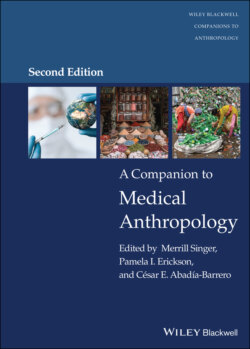Читать книгу A Companion to Medical Anthropology - Группа авторов - Страница 25
CRITICAL APPROACHES
ОглавлениеAs the 1980s ticked into place, anthropology – particularly cultural anthropology – began responding to changes in global and domestic power relations as well as to feel the heat of other disciplines’ critiques of traditional ethnographic methods: “The subjects of ethnography could no longer be constituted in as objective terms as previously” (Marcus 2005, p. 680). Definitions of culture, already in flux in the 1970s, grew increasingly “non-essentialist, fragmented, and [came to be] penetrated by complex world historical processes mediating the global and the local” (p. 681). The stage was set for the emergence of a critical form of medical anthropology – one that took the lessons of political economy to heart.
Even in the 1970s and earlier, some anthropologists had taken seriously the lessons of historical materialism encapsulated in the works of Karl Marx and Friedrich Engels. Eric Wolf’s contributions and subsequent changes in the political climate supported growth in this line of thinking, even in the USA, where earlier anti-communism had squelched it. In the UK and elsewhere, scholars such as Ronnie Frankenberg also drew on the work of Italian revolutionary Antonio Gramsci. The focus on conflict and reconciliation and the tensions extant between (individual) agency and (social) structure, promoted earlier by Max Gluckman’s Manchester School, gained new ground.
As a result, a newly “critical” perspective burgeoned. Proponents denounced past ignorance of political economic factors in medical anthropology. Systems thinking, most obviously in the form of world systems theory (as per Immanuel Wallerstein) and dependency theory (as per Andre Gunder Frank), was brought into play. Building on work done in the 1970s with regard to how “great traditions” (e.g., Ayurveda) do and do not respond to incursions from what some by now called “capitalist” or “cosmopolitan” medicine, medical anthropology in the 1980s confronted head-on the impact of hierarchical social relations on health knowledges, actions, and outcomes (see, for example, Baer et al. 1986; Singer 1986).
While interpretive medical anthropology focused on local symbolic significances and networks of meaning, taking ideas as key, critical medical anthropology (CMA) advocates prioritized the examination of power structures that underlay dominant cultural constructions, and questioned the ways in which power (including the power to frame “reality”) was deployed. In doing so, CMA sought (as it still does today) to expose local power dynamics and to reveal how outside interests – regional, national, global – affect local conditions. Furthermore, CMA showed (and shows) how health ideas and practices reinforce social inequality as well as expressing it.
